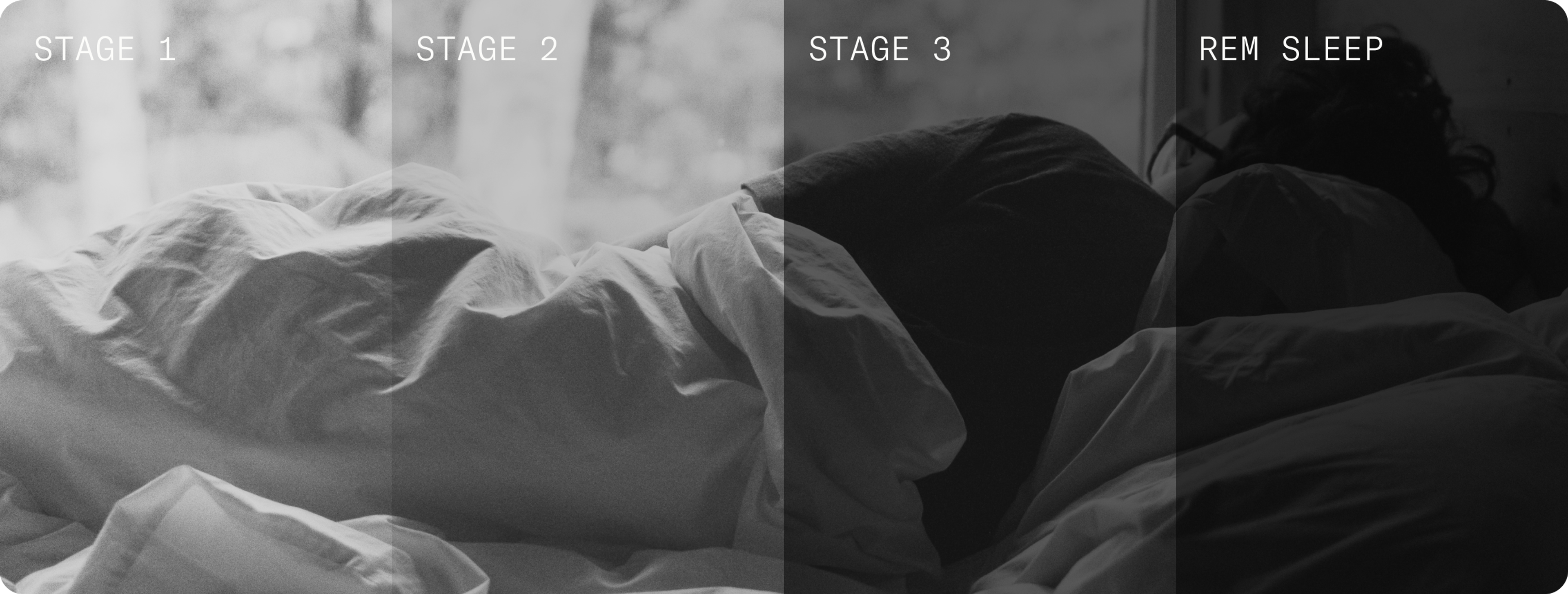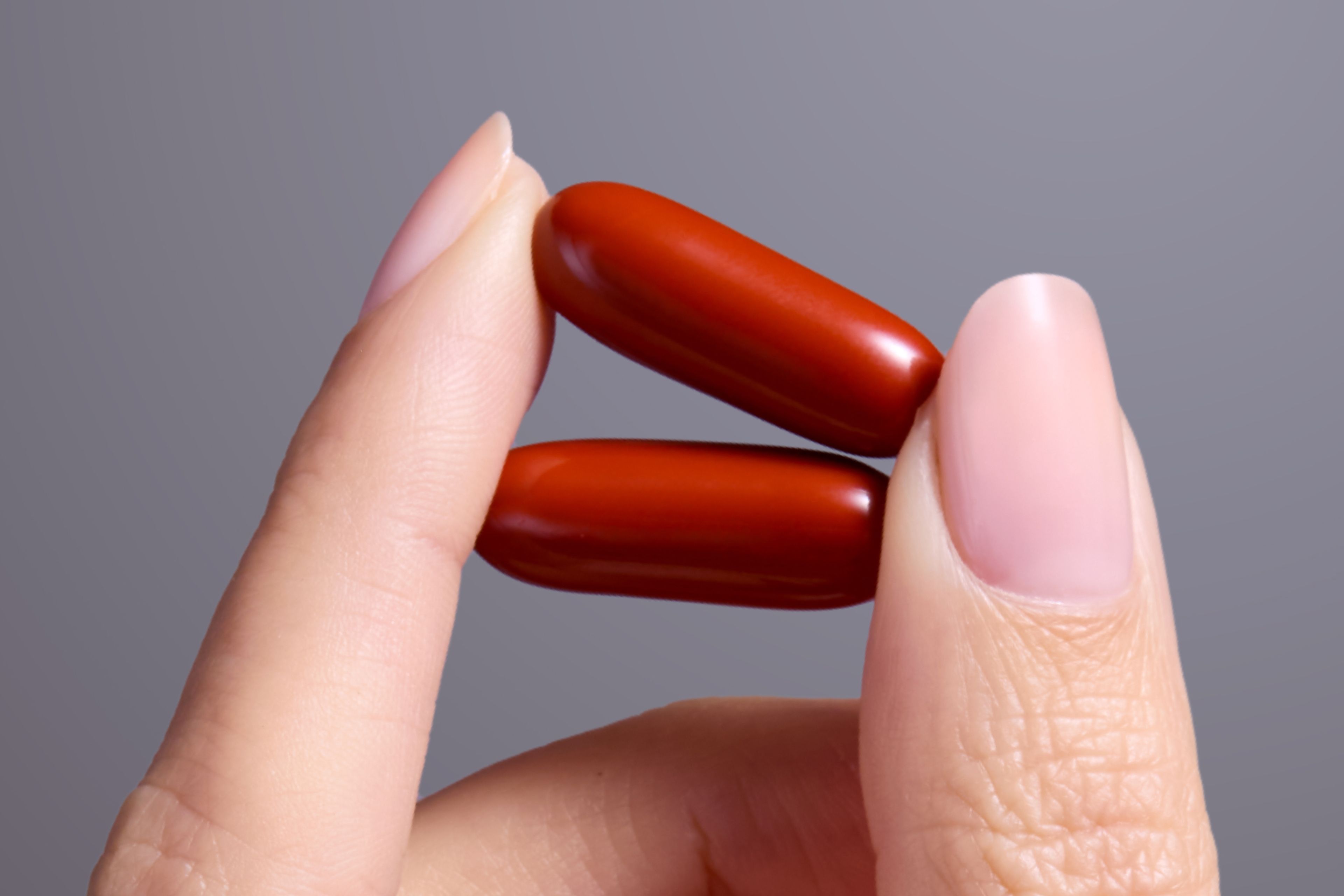The restorative power of sleep on cellular renewal
Explore the importance of quality sleep in optimizing cellular renewal, boosting immunity, improving mood, and enhancing overall health.

What to know
Sleep is an active dynamic process critical for our health and well-being
We cycle through four distinct phases of sleep each night
Sleep plays a role in cellular repair and renewal, mitochondrial health, and the removal of cellular waste
Good sleep is associated with good health, including mood, cognition and memory, appetite and metabolism, and immune health
There are several practices and behaviors you can implement to improve your sleep
The power of sleep
Every night, while we are seemingly at rest, our bodies embark on a journey of healing and regeneration, which plays a crucial role in maintaining our health and vitality. Sleep is not just about rest for our weary body and mind but is a catalyst for cellular renewal and longevity.
Read on as we delve into the science behind sleep, uncovering how these quiet hours are working hard to repair, rejuvenate, and revitalize every cell in our body for better energy and health.
Understanding sleep
Sleep isn't just a passive state; it's an active and dynamic process crucial for our well-being. It's composed of several stages that cycle throughout the night, each playing a distinct role in our health.

The sleep cycles
Sleep is divided into four stages:[1]
- Stage 1: This stage is the lightest stage of sleep, where our heart rate and breathing begin to slow down and our muscles begin to relax. We can be easily woken during this stage.
- Stage 2: This is also considered a light phase of sleep, where things continue to slow down and our temperature drops. During this phase, our brains create “sleep spindles,” short bursts of activity that create a sawtooth-like pattern on a recording of brain activity.
- Stage 3: During this phase, you are falling into a deeper, more restorative state of sleep from which it is harder to be woken. Stage 3 sleep is when the body repairs muscle tissue, encourages growth, and strengthens immune function.
- REM sleep: REM stands for rapid eye movement. This stage of sleep is aptly named because your eyes rapidly move back and forth behind your closed eyelids. During this stage, you experience increased heart rate and blood pressure with irregular breathing patterns, but your leg and arm muscles are temporarily paralyzed to stop you from acting out your dreams. This stage is critical for consolidating memories and learning, helping with daytime concentration and your mood.
After REM, the sleep cycle begins again.
For optimal health, it's not just the total number of hours we sleep that matters, but the quality and structure of that sleep. Completing several full cycles of sleep, including all of the stages, is vital for the body and brain to rejuvenate and prepare for the new day fully. This is why experts suggest getting 7-8 hours of sleep every night.
The role of circadian rhythm and sleep
Our circadian rhythm is a 24-hour internal clock running in the background of our body. It's influenced by external cues, especially light, which helps align our sleep pattern with the day and night. As darkness falls, our body produces more melatonin, a hormone that promotes sleep, and decreases its production with morning light.[2] This rhythm affects and orchestrates not just our sleep but also various physiological processes, including hormone levels, body temperature, and metabolism, all of which play roles in our overall health and sleep quality.
By understanding both the sleep stages and the circadian rhythm's influence on sleep, we can appreciate the complexity and importance of sleep as a critical component of our health regimen.

Sleep’s role in cellular renewal
Deep down at the cellular level, sleep is influential in the rejuvenation and renewal of our cells, which plays a pivotal role in maintaining our health and promoting longevity. Here’s how
Cellular repair and regeneration
While we sleep, growth hormone, essential for tissue growth and muscle repair, is predominantly released during deep sleep. [3]This process is vital for recovering from the physical wear and tear of daily activities and is a cornerstone of cellular health.
Cellular waste removal
Sleep plays a critical role in how our brain cells remove waste. The glymphatic system, a unique cleaning process in the brain, is mostly active during sleep. It clears away neurotoxic waste products that accumulate in the brain throughout the day. This cleansing process is critical for brain health and function.[4]
Mitochondrial function
Quality sleep may also play a role in maintaining optimal mitochondrial function. Sleep disorders have been linked to mitochondrial stress and dysfunction, impacting energy levels and increasing the risk of chronic diseases.[5]
Benefits of sleep for overall health
Every day, scientists are learning more about the critical role that sleep plays in our overall health. From bolstering our immune defenses to enhancing cognitive abilities, regulating mood, appetite, and metabolism to even potentially extending our lifespan, the positive impacts of sleep are as profound as they are essential.
- Immune system boosting: Adequate sleep is essential for a strong immune system. It helps to produce and regulate key immune cells like cytokines, T cells, and interleukins, bolstering the body's defense against infections and illnesses.[6]
- Memory and cognitive function: Sleep plays a critical role in memory consolidation – the process of converting short-term memories into long-term ones.[7] It also enhances cognitive functions such as attention, problem-solving, and creativity.[8]
- Mood and mental health: Quality sleep is linked to better mood regulation, and many mental health disorders are associated with altered sleep patterns.[9]
- Muscle health: Inadequate sleep has been linked to poor muscle health. Sleep deprivation is associated with impaired secretion of hormones like insulin-like growth factor-1 (IGF-1), which are critical to muscle growth and recovery.[10]
- Appetite control and metabolism: Lack of sleep has been associated with an alteration in our hunger and satiety hormones, as well as insulin sensitivity. Research suggests that poor sleep habits could contribute to the development of metabolic conditions like obesity and diabetes.[11]
- Longevity and reduced risk of chronic diseases: Studies suggest that the oldest living individuals keep to a consistent sleep/wake schedule.[12] Regular, restorative sleep is associated with increased longevity and a reduced risk of chronic diseases.[13]
Strategies for better sleep
Sleep is not something that comes easily to everyone. Often, with busy schedules, we find ourselves going to bed later and waking earlier in an effort to accomplish more. And for many, even when you try to get some shut-eye, falling asleep and staying asleep present as a challenge. Here is a list 5 science-backed ways to help you get those much needed ZZZZ’s[14]:
- Establish a sleep schedule: Stick to a consistent schedule of when you go to sleep and when you wake up. It’s important to stick to this even on the weekends as this helps to regulate your body’s internal clock.
- Create a sleep-friendly environment: From black-out shades and white noise machines to adjusting the thermostat to 65-68 degrees Fahrenheit, you can create an environment that is conducive to good sleep. Consider upgrading your mattress and pillow to help create a comfortable place to sleep.
- Disconnect your devices: Blue light emitted from smartphones, TVs, and computer screens can suppress the production of melatonin, a critical sleep hormone. Additionally, the activity you are doing on these devices can be stimulating, making it hard to shut your brain off after using them.
- Relax: Dedicating 30 minutes before bedtime to a relaxing activity can help quiet your mind. Take a hot bath, read a book, meditate or listen to relaxing music.
- Seek professional help: If you struggle with falling asleep or staying asleep, talk to your healthcare practitioner. There are several underlying reasons and conditions that can be thwarting your efforts for a good night's sleep.
Wrapping up
Clearly, sleep is a powerful tool for cellular renewal and overall health. Its transformative effects extend beyond mere rest, playing a vital role in maintaining our mental, physical, and emotional well-being.
Authors

Senior Manager of Nutrition Affairs

Reviewed by
Lead Regulatory Affairs & Scientific Manager Alliances at Timeline
References
- ↑
What Are the Sleep Stages? National Sleep Foundation. Published November 12, 2020. Accessed January 3, 2024. https://www.thensf.org/what-are-the-sleep-stages/ (https://www.zotero.org/google-docs/?LmT3Ua)
- ↑
Circadian Rhythms. National Institute of General Medical Sciences (NIGMS). Accessed January 9, 2024. https://nigms.nih.gov/ (https://www.zotero.org/google-docs/?LmT3Ua)
- ↑
Olarescu NC, Gunawardane K, Hansen TK, Møller N, Jørgensen JOL. Normal Physiology of Growth Hormone in Adults. In: Feingold KR, Anawalt B, Blackman MR, et al., eds. Endotext. MDText.com, Inc.; 2000. Accessed January 9, 2024. http://www.ncbi.nlm.nih.gov/books/NBK279056/ (https://www.zotero.org/google-docs/?LmT3Ua)
- ↑
Semyachkina-Glushkovskaya O, Fedosov I, Penzel T, et al. Brain Waste Removal System and Sleep: Photobiomodulation as an Innovative Strategy for Night Therapy of Brain Diseases. Int J Mol Sci. 2023;24(4):3221. doi:10.3390/ijms24043221 (https://www.zotero.org/google-docs/?LmT3Ua)
- ↑
Brunetti V, Della Marca G, Servidei S, Primiano G. Sleep Disorders in Mitochondrial Diseases. Curr Neurol Neurosci Rep. 2021;21(7):30. doi:10.1007/s11910-021-01121-2 (https://www.zotero.org/google-docs/?LmT3Ua)
- ↑
Besedovsky L, Lange T, Born J. Sleep and immune function. Pflüg Arch - Eur J Physiol. 2012;463(1):121-137. doi:10.1007/s00424-011-1044-0 (https://www.zotero.org/google-docs/?LmT3Ua)
- ↑
Boyce R, Williams S, Adamantidis A. REM sleep and memory. Curr Opin Neurobiol. 2017;44:167-177. doi:10.1016/j.conb.2017.05.001 (https://www.zotero.org/google-docs/?LmT3Ua)
- ↑
Deak MC, Stickgold R. Sleep and cognition. WIREs Cogn Sci. 2010;1(4):491-500. doi:10.1002/wcs.52 (https://www.zotero.org/google-docs/?LmT3Ua)
- ↑
Baglioni C, Nanovska S, Regen W, et al. Sleep and mental disorders: A meta-analysis of polysomnographic research. Psychol Bull. 2016;142(9):969-990. doi:10.1037/bul0000053 (https://www.zotero.org/google-docs/?LmT3Ua)
- ↑
Chen Y, Cui Y, Chen S, Wu Z. Relationship between sleep and muscle strength among Chinese university students: a cross-sectional study. J Musculoskelet Neuronal Interact. 2017;17(4):327-333. (https://www.zotero.org/google-docs/?LmT3Ua)
- ↑
Morselli L, Leproult R, Balbo M, Spiegel K. Role of sleep duration in the regulation of glucose metabolism and appetite. Best Pract Res Clin Endocrinol Metab. 2010;24(5):687-702. doi:10.1016/j.beem.2010.07.005 (https://www.zotero.org/google-docs/?LmT3Ua)
- ↑
Mazzotti DR, Guindalini C, Moraes WA dos S, et al. Human longevity is associated with regular sleep patterns, maintenance of slow wave sleep, and favorable lipid profile. Front Aging Neurosci. 2014;6. Accessed January 10, 2024. https://www.frontiersin.org/articles/10.3389/fnagi.2014.00134 (https://www.zotero.org/google-docs/?LmT3Ua)
- ↑
Ramos AR, Wheaton AG, Johnson DA. Sleep Deprivation, Sleep Disorders, and Chronic Disease. Prev Chronic Dis. 2023;20:E77. doi:10.5888/pcd20.230197 (https://www.zotero.org/google-docs/?LmT3Ua)
- ↑
The 20 Ultimate Tips for How to Sleep Better. Sleep Foundation. Published April 17, 2009. Accessed January 10, 2024. https://www.sleepfoundation.org/sleep-hygiene/healthy-sleep-tips (https://www.zotero.org/google-docs/?LmT3Ua)









